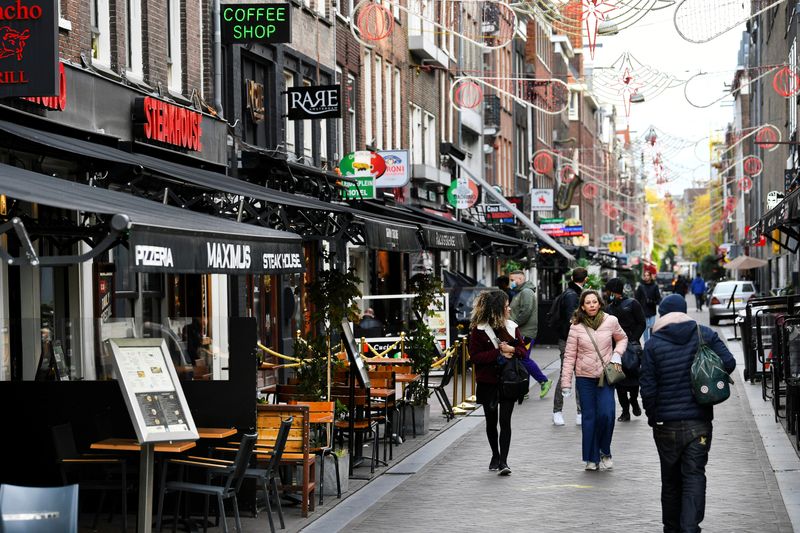Mild recession ends Dutch economy’s strong post-COVID boom
2023.08.17 03:14

© Reuters. FILE PHOTO: People walk past restaurants and bars following the new social restrictions announced by the Dutch government, as the Netherlands battle to control the spread of the coronavirus disease (COVID-19), in Amsterdam, Netherlands October 14 2020. RE
AMSTERDAM (Reuters) -Economic growth in the Netherlands will be much slower than earlier expected this year, as a recession in the first half of 2023 ended a strong post-COVID 19 boom, government policy adviser CPB said on Thursday.
Growth is set to drop to 0.7% in 2023 and 1.4% in 2024, the CPB said, after hitting almost 5% per year in 2021 and 2022 during a strong recovery from the pandemic lockdowns.
The CPB in March had predicted an expansion of 1.6% in 2023 and 1.4% the year after.
The euro zone’s fifth largest economy entered a recession in the first half of the year, as it shrank 0.3% in the second quarter after a 0.4% contraction in the first three months of 2023.
The first recession since the pandemic is expected to be relatively mild, as unemployment is seen remaining at the current low level of around 4%, with wage rises on average offsetting rising food prices and energy bills next year.
Inflation, however, is expected to remain high throughout 2024 at almost 4%, which could push up the number of households living in poverty to 6% of the total population, the CPB said.
Additional government support could limit this increase, the policy adviser said, but rising interest rates and climbing costs for the energy transition and healthcare are putting a strain on the budget.
With unchanged policies the government deficit is seen rising from 2.4% of gross domestic product (GDP) to almost 4% by 2028.








